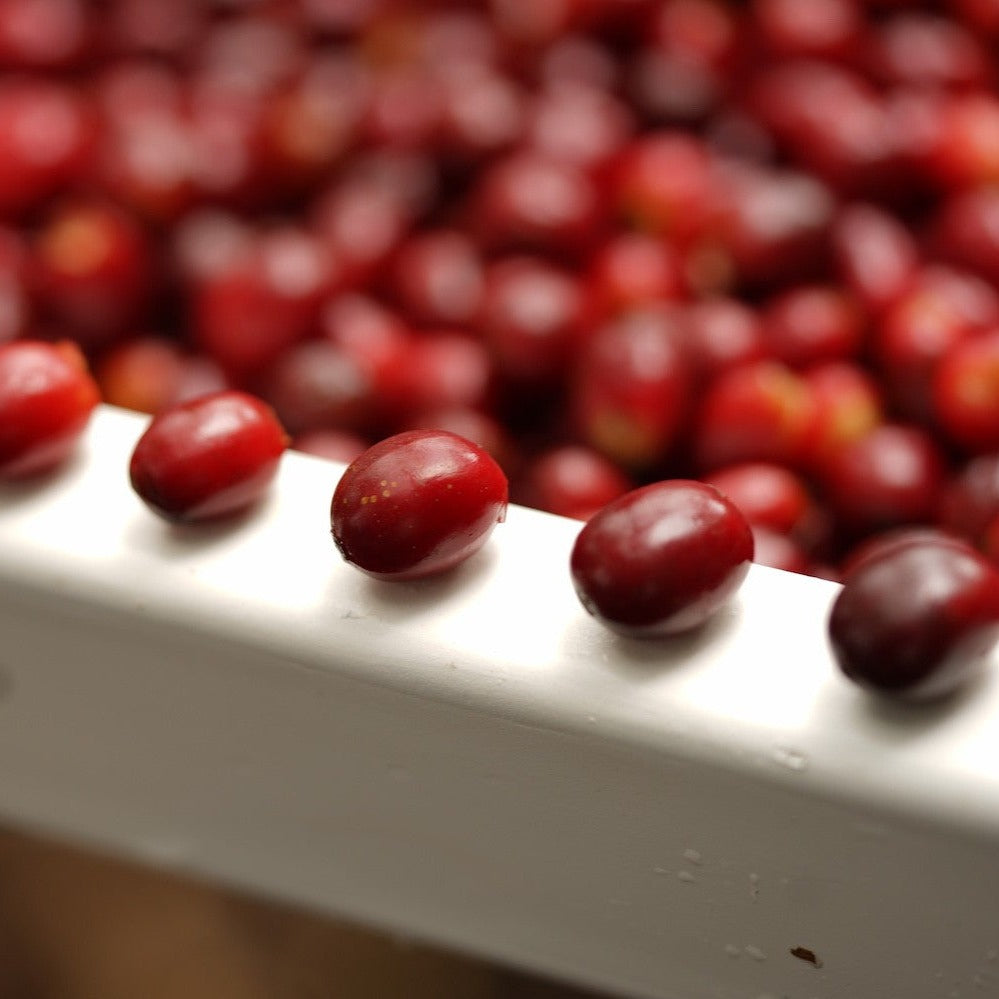Alejo Castro
Filter • Experimental & complex
Complex and winey with deep fruity notes like cherry and blackberry, with dried fruits sweetness.
Regular price€22,00
€88,00/kg
Tax included.
Farm Volcán Azul • Hacienda Colima
Region Heredia, Central Valley
Altitude 1400–1500 MASL
Variety Caturra
Process Natural anaerobic
Natural anaerobic
The post-harvest process at Volcán Azul aims to develop the unique strengths of each coffee. For this lot, the cherries are fermented in tanks where oxygen is removed and replaced with CO2. After several days of fermentation, the coffee is spread on raised beds and rotated daily. The beans are covered overnight to retain maximum heat. This process continues until the coffee reaches a humidity level between 10.5% and 11.5%.
V60 Pour-Over
- Dose: 15 g
- Grind Size: 650 µm | Commandate ~22 Clix (44 Red Clix)
- Water: 230 g at 94°C
- Pouring Stages: 50 g (0:00) | 100 g (0:50) | 80 g (1:50)
- Total Brew Time: 2:45
- TDS: 1.5 %
- Extraction Yield: 18.66 %
Pro Tips
- Grind Size: A finer grind increases extraction, intensifying flavour and strength. Too fine can lead to over-extraction and bitterness, while too coarse can result in under-extraction and sourness.
- Temperature: Higher temperatures enhance acidity, while lower temperatures reduce acidity, highlight sweetness, and minimize bitterness.
- Brew Ratio & Yield: To increase strength (viscosity), use a higher dose, a finer grind, or a shorter brew time. For clarity and brightness, adjust for a longer ratio or slightly coarser grind.
- Solubility: Light roasts require a finer grind and/or higher temperature to extract flavours fully. Medium-dark roasts extract more easily and may benefit from a slightly coarser grind and/or lower temperature.
















